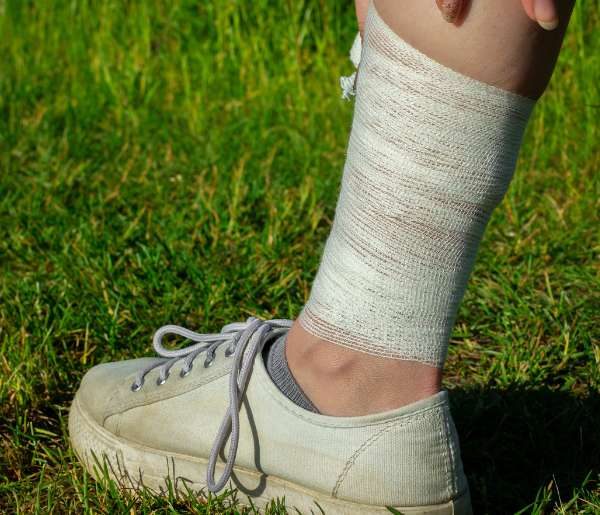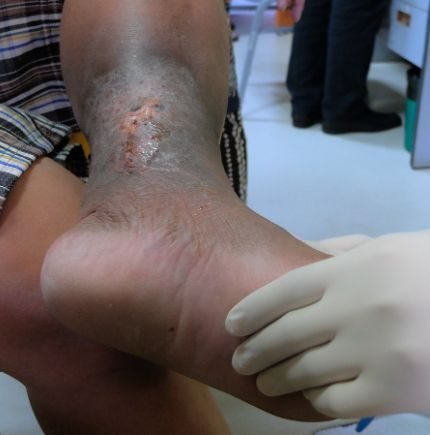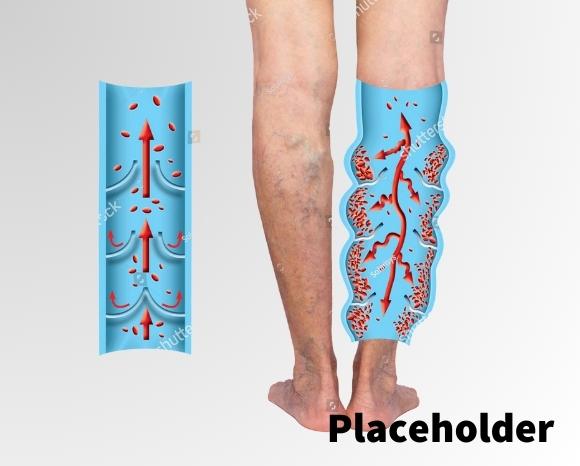What is a Non-Healing Leg Wound?
Non-healing leg wounds are wounds that fail to progress through the normal stages of healing within a reasonable timeframe. They may remain open, become chronic, or worsen over time. These wounds are commonly found on the lower legs and ankles and can be painful, itchy, and prone to infarction.
It is crucial to address non-healing wounds on your legs promptly, as they may indicate underlying issues that require medical attention. These wounds, often linked to varicose veins, can lead to serious complications if left untreated.
What are Symptoms of a Non-Healing Leg Wound?
Symptoms of a non-healing leg wound, also known as a venous ulcer or stasis ulcer, can vary depending on the severity and underlying cause of the wound. However, common symptoms typically include:
- Leg Pain
- Swelling
- Odor
- Persistent Open Sore
- Inflammation
- Drainage or Discharge
Treatments
What can be done for my non-healing leg wound?


- Causes
- Treatment
- Insurance Coverage

What causes a non-healing leg wound?
Non-healing leg wounds, also known as venous ulcers or stasis ulcers can be complications associated with varicose veins. These are most commonly caused by weakened or ineffective veins that fail to return blood to the heart. Varicose veins can lead to increased pressure in the veins, which can damage the surrounding tissues and impair circulation resulting in the formation of an ulcer or open wound. Varicose veins can also compromise the delivery of oxygenated blood to the tissues. Reduced oxygen levels decrease the ability to repair tissue in the body, making it more difficult for wounds to heal properly.

How is a Non-Healing Leg Wound Treated?
At Tepas Vein Center there are several treatment options we offer. All treatments are performed in the office and are minimally invasive. We offer medical-grade compression stockings, Cosmetic Lasers, Varithenia®, VenaSeal™, and ClosureFast™ Radio Frequency Ablations. You will meet with our team of board-certified surgeons and nurse practitioners to determine which treatment is best to meet your needs and provide the best possible outcome.

Will Insurance Cover Treatment?
We accept most major insurance and most plans will cover varicose vein treatments. Because insurance plans, coverages, and deductibles are different, we advise you to call your insurance company and discuss what benefits are available to you for the treatment of varicose veins. Typically you will pay your standard specialist co-pay for your consultation. You will likely have an appointment for ultrasound testing and then a separate follow-up appointment to discuss the results of the testing. During your follow up the provider will determine the best course of action to schedule you for one of our treatment options. Before the actual treatment, we will work with your insurance company to determine any out-of-pocket or co-pay expense that you will be responsible for.

